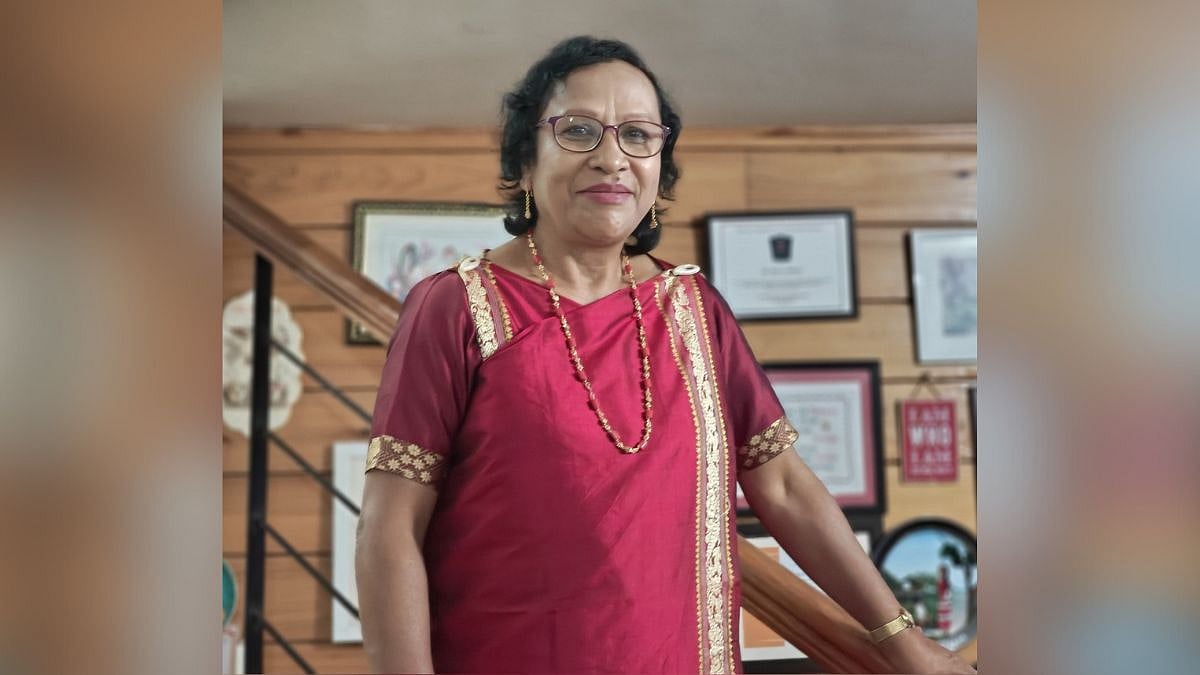Afrida: On February 13 this year, the Government of India imposed President’s Rule in Manipur following the resignation of Chief Minister N. Biren Singh and the ongoing ethnic violence in the state. The expectation was that this move would help restore order and initiate dialogue. But has there been any real change on the ground?
Patricia Mukhim: Sadly, no. We don’t see any real change. Those from the Kuki community, who have worked in Imphal for decades, are unable to return due to insecurity. How can we call this situation normal? It remains highly abnormal and fluid. People are still afraid of one another.
Afrida: In your recent column, you mention that even Parliament didn’t engage meaningfully with the issue. Can you elaborate?
Patricia Mukhim: Exactly. The decision to ratify President’s Rule was rushed through Parliament in under an hour. It came up late in the day, allowing no scope for debate. It felt like an afterthought—just something that needed to be done. That’s not fair to the people of Manipur. The opposition did raise valid concerns, but the lack of discussion shows that Manipur isn’t a priority in the national discourse.
Afrida: That’s quite disheartening. You also pointed out in your piece that the Prime Minister visited Guwahati but didn’t make a short trip to Imphal.
Patricia Mukhim: Yes, and that was symbolic. Just a 30-minute flight could have shown that he stands with the people who’ve been displaced for nearly three years. These people have lost everything—their homes, documents, and years of education. The emotional and psychological trauma is immense. Many are still living in relief camps. Rebuilding their lives requires much more than symbolic gestures.
Afrida: You also touched upon the broader alienation felt in the Northeast. Is that sentiment still strong?
Patricia Mukhim: Very much so. There’s a sense that the Northeast is often ignored. When debates are pushed to late hours and national leaders fail to visit conflict-hit areas, it reinforces that feeling of neglect. People are aware that the government hosts lavish events abroad, yet struggles to show the same empathy at home.
Afrida: What is the security situation in Manipur today?
Patricia Mukhim: Deeply troubling. The state police, central forces, and even armed civilians are divided along ethnic lines—Meitei and Kuki. That destroys public trust. We needed an independent security force early on. By delaying President’s Rule, the Centre let the divisions deepen. The Chief Minister himself has been accused of taking sides, which no leader of a diverse state should ever do.
Afrida: Is there any hope of dialogue or reconciliation between communities?
Patricia Mukhim: Unfortunately, no. I spoke to people from Manipur just days ago—they still guard their community boundaries with guns. Young men are doing 12-hour shifts to protect their villages. They’re missing out on education, livelihoods, everything. It’s not just about law and order anymore. It’s about rebuilding trust, which is entirely absent.
Afrida: You’ve also highlighted serious issues with connectivity in the region.
Patricia Mukhim: Absolutely. Flights from Shillong to other Northeast capitals like Dimapur and Agartala have been discontinued. We often have to drive three and a half hours to Guwahati airport for a 40-minute flight. Connectivity is worse than what the government claims. Despite tall promises, the Northeast remains cut off, even internally.
Afrida: There’s a lot of official rhetoric about the Northeast being the ‘Ashta Lakshmi’ of India. What’s your take on that?
Patricia Mukhim: It’s just rhetoric unless it translates into real care and action. The ground reality tells a different story. Relief materials don’t reach the hills because Imphal blocks them. People have to take long detours via Mizoram or Nagaland for medical aid. There is no meaningful discourse around this. Parliamentarians may speak up occasionally, but the micro-level suffering goes unheard.
Afrida: What do you believe the Government of India must do, urgently?
Patricia Mukhim: It must listen to the people. Rebuild trust. Ensure fair governance. Prioritize human lives over politics. And most importantly, visit Manipur. Show up. Engage. Acknowledge that these are Indian citizens whose futures are at stake. The situation cannot be brushed aside any longer.
Afrida: Thank you, Patricia, for sharing these critical insights. We hope the voices from Manipur are heard in the corridors of power.
Patricia Mukhim: Thank you, Afrida. Let’s hope for real change—before it’s too late.
